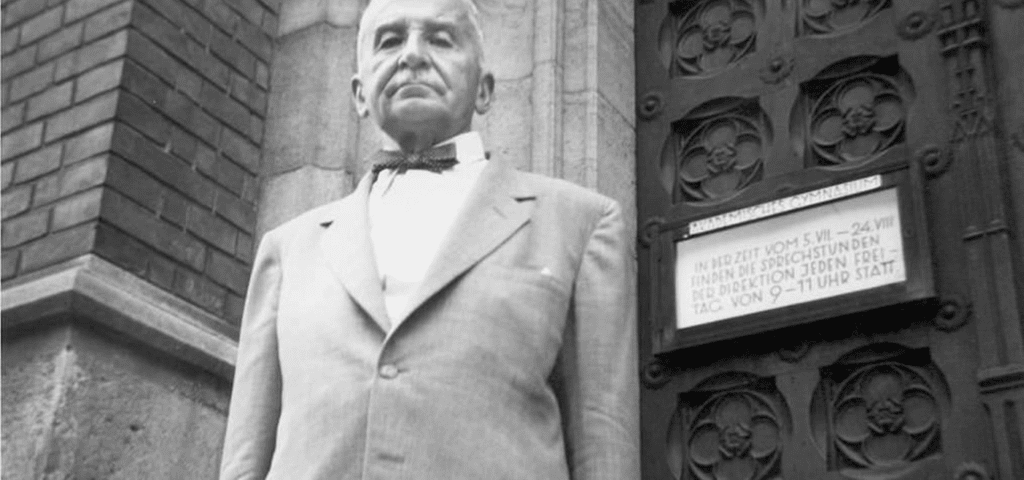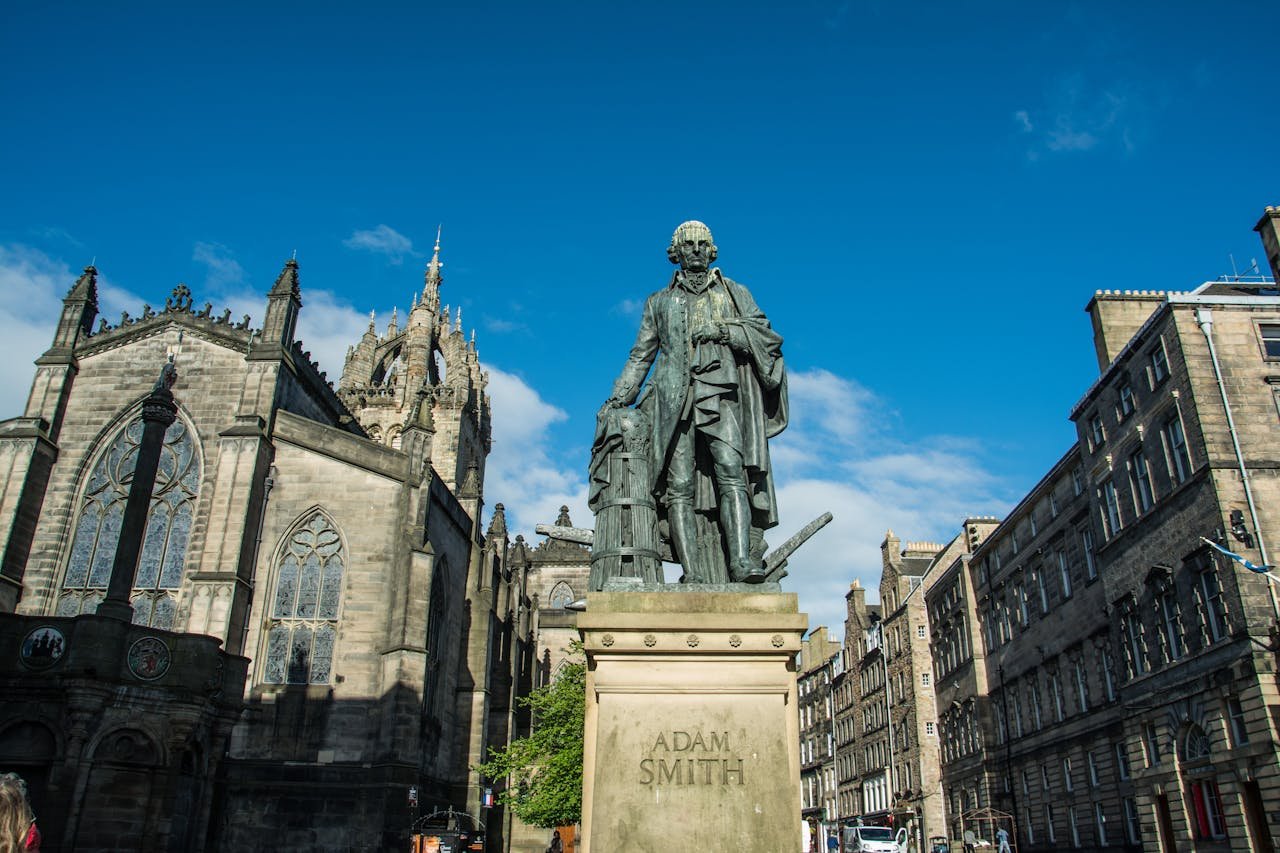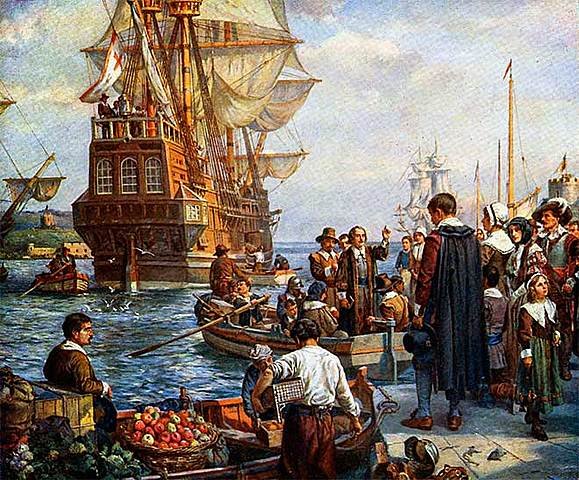ntroduction to Ludwig von Mises
Ludwig von Mises is regarded as one of the most influential economists of the 20th century, whose work has left an indelible mark on contemporary economic thought. As a leading figure of the Austrian School of Economics, Mises made significant contributions to economic theory through his emphasis on individualism, the free market, and criticism of state intervention. His expertise and deep analysis of economic phenomena provided a solid foundation for understanding and evaluating how the market economy functions.
Throughout his career, Mises argued that government intervention in the economy often resulted in inefficiencies and drawbacks that harmed both individuals and society as a whole. In his magnum opus Human Action, Mises contends that only through the free market—where individuals make decisions based on their own needs and preferences—can true prosperity and economic balance be achieved. This work became an essential reference for those who advocate for economic freedom and rational self-interest.
In addition to his economic theories, Mises worked tirelessly to disseminate his ideas through lectures, writings, and teaching. His dedication to promoting economic liberalism positioned him as a central figure in the movement for freedom and international trade. Through his efforts, he played a crucial role in establishing a robust theoretical foundation against collectivism and statism, which were prevalent in various parts of the world during his time.
In summary, Ludwig von Mises not only profoundly influenced economic theory through his writings and teachings but also left a legacy that remains relevant in the analysis and advocacy of economic liberalism and the free market today.
Importance in International Trade
Ludwig von Mises, a key figure in economic liberalism, offers significant perspectives on international trade. His approach promoted international cooperation and unrestricted trade, highlighting the benefits of an open global market. Mises argued that government controls and trade barriers hinder economic development, creating inefficiency and limiting growth.
Mises’ views on economic liberalism emphasize the importance of economic freedom not only within national borders but also on a global scale. For Mises, a free and open economy without state interference allows individuals and businesses to exchange goods and services efficiently, benefiting all parties involved. These principles create a favorable environment for innovation, increased productivity, and cost reduction—factors that are crucial for global economic development.
Furthermore, Mises asserted that international trade fosters peace and cooperation among nations. By removing trade barriers and promoting free exchange, countries become interdependent, reducing the likelihood of conflicts and encouraging peaceful relations. This liberal approach to trade helps integrate economies, providing access to a wide range of resources and markets, which in turn boosts economic growth and improves global well-being.
In summary, Mises’ relevance in the field of international trade lies in his firm advocacy for a global free market system. His ideas have been fundamental to many contemporary economic policies and theories that value openness and international cooperation. Mises’ vision of unrestricted trade remains a cornerstone for those promoting economic development and global prosperity.

The Austrian School and the Free Market
The Austrian School of Economics is a school of thought that emphasizes the importance of human action and the fundamental role of dispersed knowledge. Its principles, deeply rooted in praxeology, advocate for the study of economics based on individual behavior and the decisions people make in attempting to satisfy their needs and desires. Ludwig von Mises, one of the main exponents of this school, argued that the free market is the best mechanism for coordinating human actions.
One of Mises’ most significant contributions is his analysis of dispersed knowledge. In a complex economy, the information relevant to decision-making is distributed among millions of individuals. Each person holds only a fraction of the total knowledge, and thus no centralized entity can ever gather all the necessary information to plan an economy effectively. For Mises, this understanding highlights the importance of the free market, where prices act as signals that transmit critical information, enabling the spontaneous and efficient coordination of autonomous individuals.
The free market, according to Mises and the Austrian School, is not just a theoretical concept but a practical necessity for economic development. Through voluntary exchange and respect for property rights, individuals can more effectively discover and meet their needs than under interventionist systems where the state attempts to regulate or direct production and consumption. Mises strongly criticized state intervention, arguing that any attempt to centrally control the economy inevitably leads to discoordination and, in the worst cases, a loss of individual freedom.
In summary, the Austrian School—with Mises at the forefront—champions an economic system based on human action, dispersed knowledge, and the free market as the pillars for achieving prosperity and efficiency. Its principles continue to influence contemporary debates on how best to organize and guide global economies.
Economic Liberalism and International Trade
Ludwig von Mises’ ideas on economic liberalism firmly hold that markets perform best without government intervention. Mises advocated for a model of free trade in which nations could exchange goods and services without tariffs or restrictions. According to Mises, the engine of economic growth is open and unrestricted competition, where prices and production priorities are determined by supply and demand.
Economic liberalism, in Mises’ view, is based on the principle that voluntary and free interaction between individuals and businesses results in the best use of available resources. This philosophy extends to international trade, arguing that removing trade barriers and state regulations allows countries to specialize in areas where they have comparative advantages. As a result, all participants in international trade benefit through greater efficiency and productivity.
Mises held that state intervention in markets leads to distortions that reduce economic efficiency. Protectionist policies, such as tariffs and quotas, not only raise the cost of goods and services but also encourage unfair competition and favor less efficient producers. In contrast, an environment of unrestricted international trade would stimulate innovation and competitiveness, benefiting consumers with a greater variety of products at lower prices. Free competition also leads to better global resource allocation, promoting economic cooperation and peace among nations.
By advocating for unrestricted international trade, Mises not only emphasized the economic benefits but also highlighted the importance of individual freedom and national self-determination. For him, economic liberalism was not just an economic doctrine but a cornerstone of a free and prosperous society.
Key Contributions of Mises to International Trade
Ludwig von Mises, one of the most influential economists of the 20th century, made critical contributions to international trade that still resonate today. His theory of human action, detailed in his magnum opus Human Action (1949), asserts that economic behavior is driven by rational individual decisions. This implies that all economic activity—including international trade—is the result of actions taken by individuals seeking to improve their well-being.
One of Mises’ most significant contributions was his strong criticism of protectionism. He argued that trade barriers such as tariffs and quotas harm both consumers and producers by limiting access to cheaper and higher-quality foreign goods. Mises contended that protectionism distorts market signals, creating inefficiencies and negative effects for the economy as a whole.
Mises also defended the mutual benefits of free-market international exchange. In his view, free trade allows for more efficient resource allocation, as each country can specialize in producing the goods and services in which it has a comparative advantage. This process not only enhances global production but also increases the variety and quality of products available to consumers in all participating countries.
For Mises, international free competition is essential for economic prosperity and global peace. In his vision, international trade fosters cooperation and interdependence among nations, reducing the likelihood of conflict and promoting more harmonious relations. By viewing free trade as a civilizing force, Mises placed the free market at the center of his economic philosophy, emphasizing the importance of policies that favor openness and global integration.
Experts and Key Contributions
The influence of Ludwig von Mises extends beyond his own works and theories. A considerable number of prominent economists have built on the foundations established by Mises, significantly contributing to a deeper understanding of international trade and the free-market economy. Among these economists, figures such as Friedrich Hayek, Israel Kirzner, and Murray Rothbard stand out for their significant contributions.
Friedrich Hayek, perhaps Mises’ most famous disciple, played a crucial role in deepening the theory of the business cycle and critiquing socialism. His major work The Road to Serfdom powerfully argues against state control of the economy and makes a strong case for economic liberalism. Hayek was also awarded the Nobel Prize in 1974 for his work on monetary theory and economic fluctuations.
Israel Kirzner, another important follower of Mises, is well known for developing the theory of entrepreneurship within the Austrian School. His analysis of the entrepreneurial function and competition has provided valuable context for understanding how markets naturally balance and how state intervention can distort these processes. Kirzner emphasized the importance of discovery and innovation as essential drivers of economic growth.
Lastly, Murray Rothbard is recognized for expanding Mises’ ideas into a more radical vision of libertarianism. Rothbard developed Mises’ theory in areas such as the ethics of private property and strong criticism of government monopolies in the provision of services. His writings have been seminal in the formation of the modern libertarian movement, strongly arguing against government intervention in the economy.
Together, these economists have shown that Mises’ foundational theories in economic liberalism and international trade remain relevant and applicable. They have enriched the Misesian tradition with new perspectives and approaches, ensuring that his legacy continues to shape contemporary economic thought.
Impact and Legacy in Economic Thought
Ludwig von Mises, with his focus on economic liberalism and international trade, has left a profound mark on modern economic thought. His theories emphasize the importance of a free market not only for the prosperity of individual nations but also for harmonious global development. Mises stressed that open and competitive markets enable efficient resource allocation, foster innovation, and improve global living standards.
Mises’ impact on classical liberalism resonates especially in contemporary discussions on globalization and economic deregulation. In a world where international supply chains and free trade agreements are fundamental, Mises’ vision of the benefits of the free market remains relevant. His critiques of excessive state intervention and protectionist policies continue to shape debates on how to achieve sustainable economic growth.
Moreover, Mises’ theory of human action highlights the subjective nature of economics, arguing that individual actions and personal preferences drive the market. This approach has encouraged a deeper understanding of how economic policies can influence human behavior, a key point in shaping contemporary economic strategies.
The current relevance of Mises’ ideas is also evident in debates on deregulation. In an international environment where trade barriers and tariffs are recurring issues, his arguments for the removal of restrictions are considered essential for facilitating a dynamic and competitive global economy. Mises’ advocacy of non-intervention has inspired generations of economists to support economic systems based on individual liberty and voluntary exchange.
In terms of legacy, Mises’ work has had a lasting impact on economic theory and policy practice, solidifying his position as one of the pillars of contemporary economic liberalism.
Criticism and Controversies
The work of Ludwig von Mises, although influential and respected in many circles, has not been without criticism and controversy. One of the most debated aspects is his unwavering rejection of state intervention. For many critics, Mises’ stance appears overly idealistic and perhaps utopian when considering the complexity of today’s global economy. In a world where financial crises, economic inequalities, and environmental challenges require multifaceted approaches, radical economic liberalism can seem outdated.
Additionally, the intellectual debates between Mises and Keynesian and neoclassical economists have been particularly influential in defining the boundaries and scope of economic liberalism. Economists such as John Maynard Keynes criticized the idea of a completely free market, arguing that without government intervention, the economy could fall into cycles of high instability and mass unemployment. Keynes viewed state intervention as essential for smoothing economic cycles and ensuring full employment.
On the other hand, neoclassical economists, while sharing certain ideas with Mises about market efficiency, believed in the need for some degree of regulation to correct market failures such as monopolies and negative externalities. The ongoing debate over international trade regulation has also sparked controversy, with some critics arguing that unrestricted free trade can lead to exploitation and economic imbalances between nations.
These criticisms do not diminish the influence and brilliance of Mises but rather highlight the richness and diversity of thought within economics. It remains essential to continue exploring these debates to achieve a balance that optimizes social welfare without sacrificing economic freedom. Mises’ work continues to be a fundamental—though not infallible—pillar of contemporary economic thought.
References
- Mises, Ludwig von. Human Action: A Treatise on Economics. Yale University Press, 1949.
- Mises, Ludwig von. Liberalism: In the Classical Tradition. Arlington House, 1962.
- Hayek, Friedrich A. The Road to Serfdom. University of Chicago Press, 1944.
- Kirzner, Israel M. Competition and Entrepreneurship. University of Chicago Press, 1973.
- Rothbard, Murray N. Man, Economy, and State with Power and Market. Ludwig von Mises Institute, 2004.
- Ebeling, Richard M. The Austrian Theory of the Trade Cycle and Other Essays. Ludwig von Mises Institute, 1996.
- Salerno, Joseph T. Money, Sound and Unsound. Ludwig von Mises Institute, 2010.


